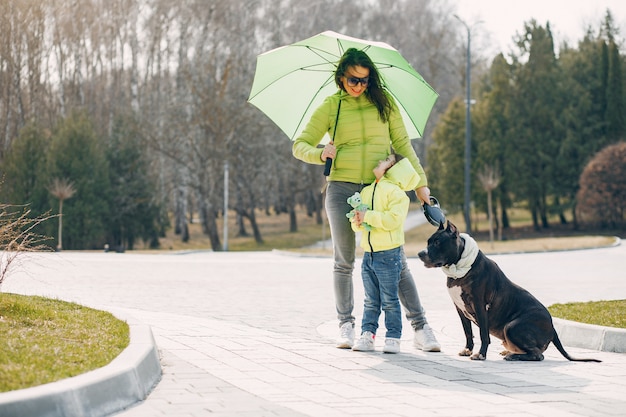Keeping Cats and Dogs Safe During Rainy August Days in Hillsboro

Keeping Cats and Dogs Safe During Rainy August Days in Hillsboro
August in Hillsboro brings its own unique blend of warm days and sudden summer downpours. For pet owners, this seasonal shift means new challenges in keeping cats and dogs safe, comfortable, and healthy. At Hillsboro Advanced Veterinary Care, our team of dedicated veterinarians understands how quickly rainy weather can turn a daily walk or backyard adventure into a source of stress or illness for your furry family members. Whether your pet loves to splash in puddles or prefers to curl up indoors at the first sign of thunder, it’s important to be aware of seasonal risks and how to prevent them.
In this guide, you’ll find top Hillsboro pet care tips for dealing with muddy paws, increased pest activity, skin infections, and the hidden hazards that come with wet weather. You’ll also learn when it’s time to seek professional veterinary services in Hillsboro, and how our team supports your pet’s health through every soggy day of the season. If you’re searching for a “vet near me” who truly understands local weather challenges, Hillsboro Advanced Veterinary Care is here for you at 8153 IL Route 127, Hillsboro, IL 62049.
Protecting your pet from rainy weather is about more than just toweling off after a walk; it’s about understanding the risks, recognizing early warning signs, and having a trusted veterinary partner by your side. From routine checkups to preventative care services, we’re here to help you keep your pet healthy all year long.
Recognizing Weather-Related Problems in Your Pet
The arrival of frequent August rains in Hillsboro and surrounding communities can bring a surge of weather-related health concerns for both cats and dogs. Knowing what to watch for ensures you can act quickly and keep your pet comfortable.
Common symptoms of pet health issues related to rainy weather include persistent licking or chewing of paws, red or inflamed skin between toes, the appearance of hot spots or rashes, a sudden increase in scratching, and a musty odor from the coat or feet. Additionally, changes in behavior such as reluctance to go outside, increased hiding, or signs of discomfort after being outdoors may signal that your pet is struggling with the effects of wet weather.
Muddy paws are not just messy; they can also carry bacteria and fungi that lead to skin infections if left unaddressed. Dogs that love to romp in the yard after a rainstorm may be especially at risk, while indoor cats can develop skin irritation from increased indoor humidity or from tracking in dampness on their fur.
If you notice any of these signs, it’s important to consider whether the recent weather or outdoor conditions may be contributing to your pet’s discomfort. Early recognition can be key to effective treatment and prevention.
Why Rainy Weather Poses Unique Risks for Cats and Dogs
While a little rain can feel refreshing, the combination of moisture, warmth, and humidity typical of August in Hillsboro creates a perfect environment for certain health problems to thrive. Understanding the causes behind these issues helps you take proactive steps to protect your pet.
Wet weather brings a spike in parasites such as fleas, ticks, and mosquitoes. Standing water provides an ideal breeding ground for these pests, and pets can easily pick them up during walks or playtime in damp grass. Additionally, the persistence of mud and moisture on paws and skin increases the risk of bacterial or fungal infections, including interdigital dermatitis and hot spots.
Muddy or wet conditions can also make it easier for pets to contract illnesses such as leptospirosis, which is spread through water contaminated by wildlife urine. Dogs who drink from puddles or explore wet areas are particularly vulnerable. Furthermore, extended dampness can exacerbate existing skin allergies or cause new flare-ups, especially in breeds that are prone to dermatological issues.
Cats may not venture out as frequently during rainstorms, but even indoor-only pets can be affected by increased indoor moisture and allergens. Damp environments may also contribute to respiratory issues or worsen existing health conditions, especially in older animals.
Professional Treatment and Veterinary Services in Hillsboro
If your pet develops signs of infection, persistent itching, or any unusual symptoms during the rainy season, prompt veterinary evaluation can make all the difference. At Hillsboro Advanced Veterinary Care, our experienced veterinarians offer a full range of diagnostic and treatment options tailored to weather-related concerns.
Treatment approaches for muddy paw infections or skin problems typically involve a combination of thorough cleaning, topical or oral medications to address bacterial or fungal infections, and targeted therapies for inflammation or allergy management. For pets struggling with relentless itching or suspected allergies, our dermatology services and allergy testing services can help identify the root cause and develop a personalized care plan.
In cases where your pet may have been exposed to waterborne illnesses or is showing signs of systemic infection such as fever, lethargy, or vomiting, timely intervention with supportive care and appropriate medications is critical. Our veterinary team is equipped to handle both routine and urgent situations, ensuring your pet receives the highest standard of care.
We recommend scheduling a wellness examination as part of your ongoing pet care routine, especially during months when environmental risks are elevated. Regular checkups give us the opportunity to catch problems early and offer guidance specific to seasonal hazards in Hillsboro.
Preventing Weather-Related Health Issues at Home
While professional care is essential when problems arise, there are many steps you can take to keep your pet safe and healthy during rainy August days. Preventative measures start with simple daily routines and extend to thoughtful planning for walks and playtime.
After outdoor adventures, gently dry your pet’s paws and coat with a clean towel, paying special attention to the areas between the toes and under the belly. This not only prevents mud and moisture from lingering but also allows you to spot any small cuts, redness, or irritation before they become bigger problems. For dogs who love puddles, regular paw cleaning can reduce the risk of infection.
Consider using pet-safe rain gear such as jackets or booties to minimize exposure to wet grass and contaminated water. Check your yard for standing water and address drainage issues promptly to limit mosquito breeding grounds. When possible, plan walks during lighter rain or after the ground has dried, and avoid areas known for stagnant water.
Keep up with your pet’s flea, tick, and heartworm prevention, especially since pest activity increases with wet weather. Discuss appropriate vaccination schedules with your veterinarian, as some diseases are more prevalent during certain seasons.
For indoor cats, ensure their environment stays dry and well-ventilated. Using dehumidifiers and regularly cleaning litter boxes can help reduce the risk of skin or respiratory issues. Providing clean bedding and cozy, dry spots to rest will keep your cat comfortable even when storms roll in.
If you’re traveling or need to be away from home during rainy periods, consider our animal boarding services for safe, professional care in a monitored environment. Our veterinary professionals are trained to recognize and manage weather-related health concerns, giving you peace of mind.
When to Seek Veterinary Care for Your Pet
Even with the best home care, some situations warrant professional attention. Knowing when to call your veterinarian can prevent minor issues from turning into serious health concerns.
You should schedule an appointment if your pet develops persistent redness, swelling, or sores on the paws or skin that do not improve within a day or two of home care. Sudden onset of fever, loss of appetite, vomiting, or lethargy after exposure to wet conditions may indicate a more serious infection or illness that requires immediate evaluation.
If your pet shows signs of an allergic reaction such as facial swelling, hives, or difficulty breathing, seek veterinary help promptly. Likewise, symptoms such as limping, refusal to walk, or intense pain after being outdoors should be addressed without delay.
Hillsboro Advanced Veterinary Care is committed to supporting the health and well-being of pets in Hillsboro and surrounding communities. Our team of veterinarians is ready to answer your questions, provide thorough examinations, and deliver the compassionate care your pet deserves. As your trusted “vet near me,” we encourage you to reach out whenever you have concerns about your pet’s health during rainy weather.
Safeguarding Pet Health All Season Long
August’s rainy days are a natural part of life in Hillsboro, but with the right knowledge and proactive care, your pets can thrive through every weather change. By staying alert to early signs of trouble, maintaining good hygiene, and partnering with a trusted veterinary team, you’re taking the best possible steps to protect your furry companions.
If you have questions about pet safety in rainy weather, or if you notice any unusual symptoms in your cat or dog, don’t hesitate to schedule an appointment with our team. At 8153 IL Route 127, Hillsboro, IL 62049, we’re proud to provide quality veterinary services in Hillsboro and neighboring communities. From preventative care to wellness examinations, our veterinary professionals are here to help.
For personalized Hillsboro pet care tips and to ensure your pet is ready for whatever the weather brings, contact us at (217) 532-5310 or visit our website to schedule your next visit. Your pet’s health and happiness are our highest priorities—let’s work together to keep them safe, dry, and wagging all season long.
Disclaimer: The information in this blog is intended for educational purposes only and should not replace professional veterinary advice. Always consult your veterinarian for specific recommendations regarding your pet’s health.

















